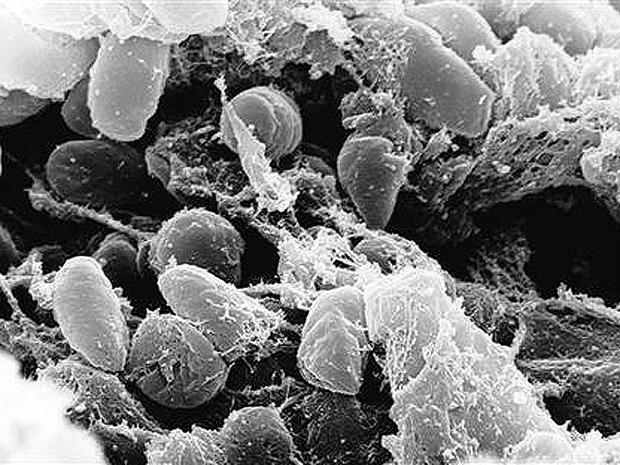Oregon man diagnosed with "black death" plague
(CBS News) Oregon health officials believe a man in a Bend hospital has been infected with the "black death" plague, a bacterial infection that affects the blood stream.
According to The Oregonian, the man became ill with the bubonic plague - the cause of the "black death" - after he was bitten on the hand by a stray cat while trying to get a mouse out of its mouth. As of Tuesday, he was listed in critical condition at St. Charles Medical Center-Bend, and his family was given preventative medication. He marks the fifth case discovered in Oregon since 1995.
The stray cat has since died, and has been sent to the Centers of Disease Control and Prevention for testing.
Often transmitted by fleas that are infected with the Yersinia pestis bacteria, people often get black plague through a bite, according to the Centers for Disease Control and Prevention. Symptoms include a swollen lymph gland known as a "bubo," fever, chills, headache, and extreme exhaustion. Illness usually occurs two to six days after infection.
During the "Black Death" period starting in the late 1340s and lasting for centuries, 25 million lives were claimed, according to National Geographic.
"This can be a serious illness," said Emilio DeBess, Oregon's public health veterinarian told The Oregonian. "But it is treatable with antibiotics, and it's also preventable."
Treatment consists of hospitalization, antibiotics and medical isolation. The problem occurs when the disease goes untreated. The plague bacteria can multiply in the bloodstream. If the lungs are infected, the person gets the pneumonia form of the plague, creating problems in the respiratory system. Both types can be fatal, and about 1 in 7 cases in the U.S. end in death. On average, 10 to 20 people are diagnosed with the disease each year in the U.S., with worldwide rates reported at 1,000 to 3,000 cases a year.
While four people have died from the plague since 1934, the last four cases - one in 1995, two in 2010 and one in 2011 - all survived, according to the Oregonian. While a plague vaccine exists, it is no longer sold in the U.S.

